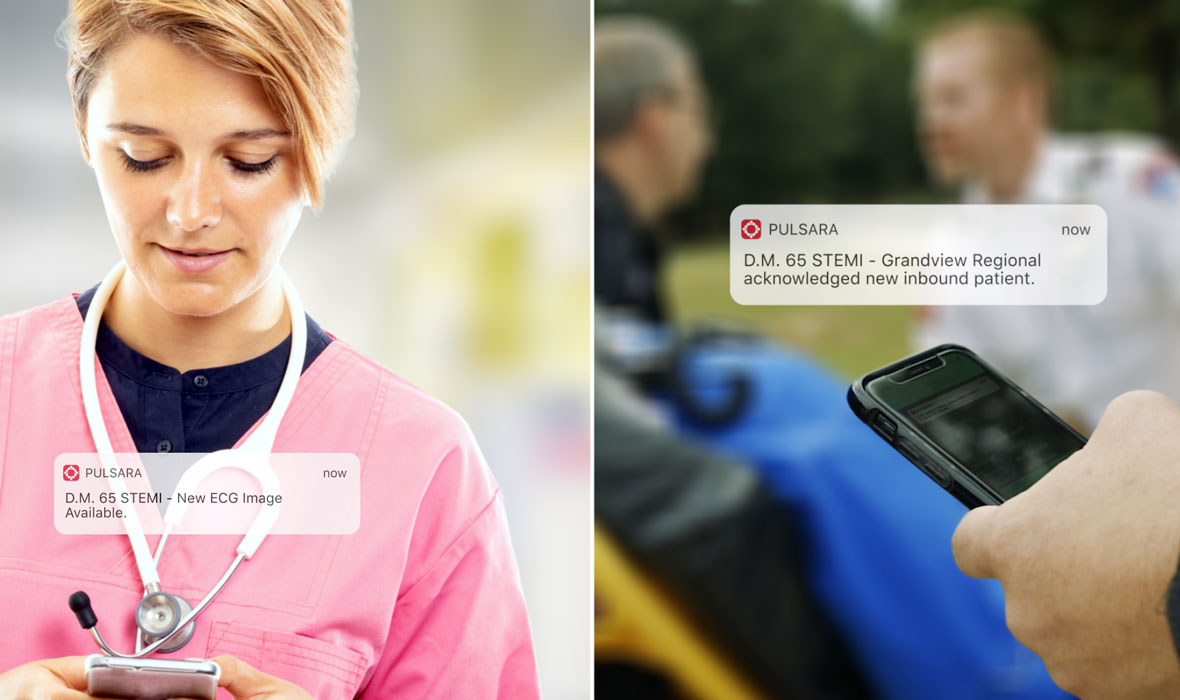EDITOR'S NOTE: Special thanks to Shane Elmore for writing today's blog post. Shane served as Pulsara's Vice President for Clinical Innovation and Development from 2013-2022. You can connect with him on LinkedIn.
—
In my opinion, if there is any group in the hospital who doesn't get the love they deserve, it's the ED Nurses. ED Nurses are the front door of the hospital, but too often, they are treated as the doormat. When people are sick and hurting, they take it out on the people in front of them (as long as they aren't wearing a white coat). The ED nurse is the person who takes what comes at them and still provides the highest level of care and compassion for the patient. ED nurse, you are the first line of defense, and here at Pulsara, we salute you. Here are five areas where we're doing our best to help make your job a little easier and ultimately, improve your life and the lives of those you serve:
- One way to do your job
The Stroke Team wants you to call the answering service to contact their docs, but not the STEMI Team — they want you to use the pager system. If it's a Trauma Team activation, you call the hospital operator and they will announce the code overhead and make all the necessary calls to the team. Oh, wait, that only if it's a level 1 or level 2 activation. If it's a level 3 or higher, call the Acute Care Nurse Practitioner on-call for Trauma.
The list of emergency teams who need to be activated is growing and shows no signs of slowing down. PERT (Pulmonary Embolism Response Team), Sepsis Alert, ROSC (Return of Spontaneous Circulation) Team, AKA Code Chill/ICE ... the list goes on and on. When we make mistakes, teams evaluate their workflow in isolation, and they can't understand why the ED can't get it right. But it's no wonder when every team has a different protocol for activation.
With Pulsara, there's ONE WAY to activate your entire team: with a simple tap.
- Simplicity in times of chaos
In 2018, the ED nurse turnover rate was 20.2%, second only to behavioral health. We know that caring for challenging patients with a critical illness, traumatic injury, or behavioral health issues in a noisy, high-stress environment with frequent interruptions and distractions leads to clinician burnout and turnover.
With Pulsara, you have incoming patient information available to you before those patients even come through the door. This allows you to arrange for the teams and resources your patients need, as well as direct EMS to bypass the ED when appropriate.
- Reduce Alarm Fatigue
The last thing you need in your hectic environment is yet another alarm. Quiet is a word that everyone in healthcare hates to say, and it's a phenomenon they seldom experience. Any time you are being alerted or alerting someone, sound is a necessary evil. Sirens, ECG alarms, low Sp02, Ventilators, screaming patients, and crying babies are often competing for attention with the sound of EMS giving a report on the radio or the phone, or in person.
You work in a loud environment, and that's not going to change. Team Pulsara is made up of clinicians like you, so we've been there. We know first-hand the chaos of the ED environment, and for that reason we always ask whether any proposed alarm or sound on our platform is absolutely necessary. Everything we create, we create with you in mind.
- Get it right the first time
We help you get the RIGHT information to the RIGHT people at the RIGHT time. It really is that simple. Don't write it down on the paper towel, glove, or the tape on the leg. Put it into Pulsara, and everyone has the same information right when they need it. Just like that, miscommunications begin to disappear.
- Easier patient handoff
When it comes to the world of time-sensitive emergencies, the analogy of the relay race is pertinent. Stopping isn't an option if you want to win. In a successful relay, the runner receiving the baton is almost at full speed when the handoff happens. That's how we see the ED working with EMS as they are inbound; we give you that runway to get the process started before the handoff. The same is true for every other team in the hospital. When the time comes for you to pass the baton, the receiving team are up and running.
At Pulsara, our purpose is to improve the lives of patients and caregivers through innovative communication. It's About People.
 Team Pulsara
:
Nov 20, 2019
Team Pulsara
:
Nov 20, 2019



